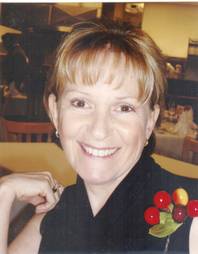Thursday, Nov. 13, 2008 | midnight

Stefani Evans
Miss Sewell, I salute you.
And I honor Miss Shepherd, Miss Spilker, Mr. Bush and Mr. Garrison. They were my junior high and senior high school English teachers. They fought mightily to instill in their students a respect for the English language. While I cannot claim to reflect their teaching, I credit them with the foundation they gave me, and I hasten to clarify that they are not responsible for my grammatical errors.
When I write a report, I endeavor to make sure my citations are correct, my analysis is complete and my conclusions are coherent. I proofread to ensure that my grammar, spelling and punctuation are correct. I use the editing software on my computer, but I don't rely on it. When I have questions regarding grammar or punctuation I turn to the current edition of "The Chicago Manual of Style," Kate Turabian's "A Manual for Writers" or Diana Hacker's "A Writer's Reference."
Our written, or formal, English should be several steps above our spoken or colloquial English. Nevertheless, I wince when I read a menu offering me "tomato's" or "pickle's" with my sandwich. The tomato and the pickle don't own anything. Likewise, my ears hurt when I hear an educated young person say, "Me 'n' Ashley," when she means "Ashley and I."
Why should genealogists care about correct grammar? Genealogists present their findings in written form (usually a report) to their clients or their relatives. Genealogists post on listservs and they send e-mails regarding their findings. A report, an e-mail, or a posting filled with grammatical errors indicates that the writer does not pay attention to detail, does not care enough to use correct English and may not care enough to impart correct information. Grammatical errors in a genealogical report cast doubt upon the genealogist's expertise. When I see a genealogy report with blatant spelling and grammatical errors, I question the quality of the genealogist's research and analysis.
I occasionally hire a genealogist when I do not have access to records in a certain jurisdiction, or when I do not know the record groups available in that area. Several years ago I hired a genealogist in New York City because I needed someone with local knowledge to mine the city's marriage records for me. The genealogist did not find the marriage record, but her report listed every record she searched with negative results. Her report was thorough, fully documented and literate. I later wrote an article citing her research in which I stated that no marriage record for the couple existed in New York City. I was able to cite her report with confidence. If her report had been less grammatically correct, I would not have sufficiently trusted her research or her analysis to cite her report or her conclusion.
Political correctness in the past generation has created a grammar conundrum, as exemplified by this sentence: "Every genealogist writes reports and sends them to their family." In order to avoid assigning a sex to the genealogist, some folks compromise by using the gender-neutral plural pronoun to modify the singular noun. Don't do it; assign a sex to the hypothetical genealogist. If you're worried about appearing sexist, then make your next hypothetical genealogist the other sex.
Some grammar rules are sneaky. Here I confess my lapses regarding restrictive and nonrestrictive clauses. I suspect Miss Sewell and my other English teachers would catch my errors in a heartbeat. Tom Jones, "National Genealogical Society Quarterly editor, Board for Certification of Genealogists trustee and past president ... ," teaches a course in writing and publishing for genealogists at the Institute for Genealogical and Historical Research at Samford University . Jones can also spot a stray comma, as he demonstrated in the course I took last summer. We had to submit a 500-word writing sample which we edited ourselves after two class sessions. I was mortified by the comma corrections Jones made in my self-edited sample. Although the exercise was somewhat embarrassing, I found help in "The Chicago Manual of Style," sections 6.31, 6.36, and 6.38 on restrictive and nonrestrictive clauses.
If I wish to present myself in the best light possible I will attempt to remember what my English teachers taught: use my language as correctly as I can, follow the rules of grammar and seek help when I don't know the rules. Anything less reflects badly on me and on my work.
Stefani Evans is a board-certified genealogist and a volunteer at the Regional Family History Center. She can be reached c/o the Home News, 2360 Corporate Circle, Third Floor, Henderson, NV 89074, or [email protected].

Join the Discussion:
Check this out for a full explanation of our conversion to the LiveFyre commenting system and instructions on how to sign up for an account.
Full comments policy